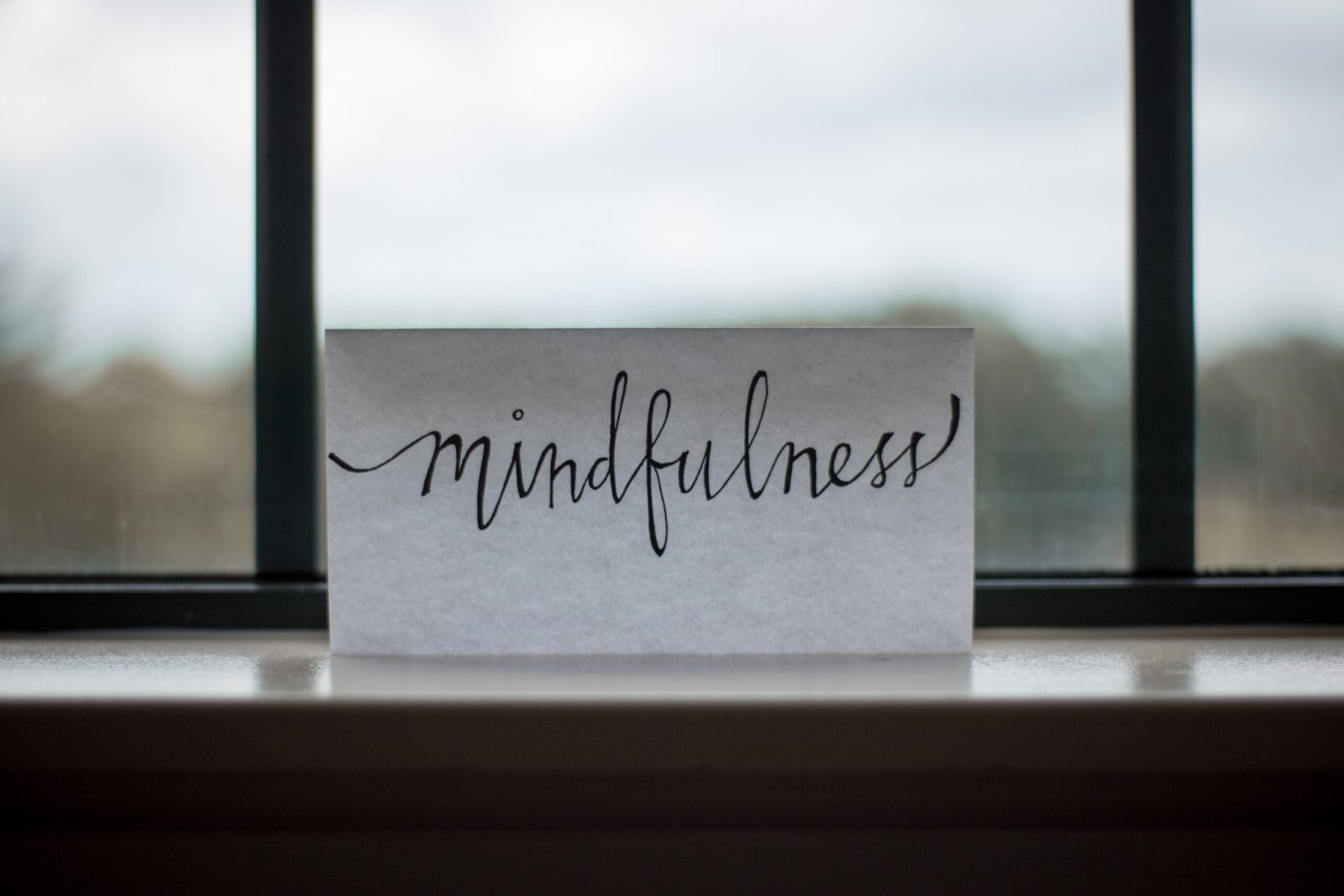
Embrace Joy with the Best Affirmations of Gratitude

Welcome to our guide on the best affirmations of gratitude. In a world that tends to focus on the negative, it’s easy to forget the positive things in our lives. But with a little bit of practice, we can enhance our positivity, improve our relationships, and find inner peace by cultivating a life of thankfulness. Through affirmations of gratitude, we can reframe our mindset and create positive changes in our lives.
In this article, we’ll explore the power of gratitude and how it can transform our lives. We’ll discuss what affirmations are, how they work, and the science behind them. We’ll also provide practical tips and daily rituals for incorporating gratitude into our lives, as well as specific affirmations for relationships, health, and challenging times. Finally, we’ll discuss the importance of cultivating a gratitude mindset for long-lasting happiness.
Key Takeaways:
- Gratitude affirmations can help cultivate a life of thankfulness and enhance positivity.
- Expressing gratitude can lead to improved mental health, increased happiness, and reduced stress levels.
- Affirmations are positive statements that can reframe our mindset and create positive changes in our lives.
- Through the science of affirmations, we know that they can rewire our brains, boost self-esteem, and improve overall well-being.
- Crafting powerful gratitude affirmations involves using positive language, focusing on the present moment, and personalizing affirmations.
Understanding the Power of Gratitude
At its core, gratitude is a mindset that focuses on the positive aspects of life. When we practice gratitude, we are acknowledging the good things in our lives and expressing appreciation for them. But did you know that gratitude also has numerous benefits for our overall well-being?
The power of gratitude lies in its ability to change our perspective and enhance our emotions. Studies have shown that practicing gratitude can lead to improved mental health, increased happiness, and reduced stress levels. When we focus on the good things in our lives, we are more likely to experience positive emotions and find joy in everyday moments.
The Benefits of Gratitude
| Benefits of Gratitude | Description |
|---|---|
| Better mental health | Regular practice of gratitude has been linked to reduced symptoms of depression and anxiety, as well as increased feelings of happiness and life satisfaction. |
| Improved physical health | Gratitude has been associated with a host of physical benefits, including improved sleep quality, reduced inflammation, and lower blood pressure. |
| Reduced stress levels | When we focus on the good in our lives, we are less likely to feel overwhelmed or stressed by the challenges we face. |
| Stronger relationships | Practicing gratitude has been shown to enhance our social connections and foster positive relationships with others. |
By focusing on the benefits of practicing gratitude, we can begin to understand the true power of this mindset. Whether we are dealing with challenging times or simply seeking a more positive outlook on life, gratitude can help us cultivate a sense of inner peace and contentment. It all begins with acknowledging the good things in our lives and expressing appreciation for them.
What Are Affirmations?
Affirmations are positive statements that are used to challenge negative thoughts and beliefs. They are a powerful tool for reprogramming the mind and creating positive changes in our lives. By repeating positive affirmations, we can reframe our mindset and focus on the good in our lives, which can lead to a greater sense of well-being, happiness, and gratitude.
Affirmations work by pushing back against negative thoughts and beliefs that can hold us back. When we repeat positive statements to ourselves, we start to believe them on a subconscious level, which can help to shift our overall outlook on life. This process of reframing our mindset can take time, but with consistent practice, it can lead to lasting positive changes.
The Science Behind Affirmations
If you’re skeptical about affirmations, it may be helpful to know that science supports their effectiveness. Here are just a few of the ways affirmations can have a positive impact on the brain and overall well-being:
| Psychological Effect | Scientific Explanation |
|---|---|
| Rewire the Brain | Affirmations can help create new neural pathways and strengthen existing ones, leading to more positive thought patterns and behaviors. (1) |
| Boost Self-Esteem | Research shows that affirmations can increase feelings of self-worth and improve overall self-esteem. (2) |
| Improve Overall Well-Being | Studies have demonstrated that affirmations can reduce symptoms of anxiety and depression and improve overall mental health. (3) |
The psychological effects of affirmations are a testament to their power in promoting well-being, from reducing stress to increasing happiness and inner peace. Incorporating affirmations of gratitude into your daily routine can be an effective way to cultivate positivity and gratitude in all aspects of your life.
References:
- Wernicke’s Area Reorganization in Positive Subliminal Priming. Neural Plasticity, 2016.
- Positive self-statements and self-esteem: A systematic review and meta-analysis. Journal of Positive Psychology, 2017.
- The effects of self-affirmation on stress responses and health: A systematic review and meta-analysis. Annals of Behavioral Medicine, 2016.
Crafting Powerful Gratitude Affirmations
Creating powerful gratitude affirmations can be a transformative practice that enhances positivity, inner peace, and joy. To craft effective gratitude affirmations, there are a few key principles to keep in mind:
- Use positive language: Affirmations should be framed in positive language, focusing on what we want to attract into our lives rather than what we want to avoid. For example, instead of saying “I am not unhappy,” reframe it to “I am filled with happiness.”
- Focus on the present moment: Gratitude affirmations should be in the present tense, reinforcing the belief that we already possess the qualities or experiences we desire. For example, rather than saying “I will be successful,” an affirmation could be “I am successful now.”
- Personalize your affirmations: Affirmations should be tailored to resonate with our emotions and goals. Consider what matters most to you and craft affirmations that are meaningful and relevant to your life.
Here are some examples of powerful gratitude affirmations:
“I am grateful for all the abundance in my life.”
“I am worthy of love and kindness.”
“I am filled with joy and peace in this moment.”
“I am grateful for my healthy body and mind.”
“I am capable of achieving my dreams.”
Remember, the key to effective gratitude affirmations is to make them positive, present-focused, and personalized. By incorporating these principles into your practice, you can cultivate a gratitude mindset that brings more joy and fulfillment into your life.
Daily Rituals for Practicing Gratitude
Gratitude is not just a fleeting feeling; it’s a mindset that needs to be cultivated daily. Here are some simple yet impactful daily gratitude rituals that you can incorporate into your life:
| Ritual | Description |
|---|---|
| Gratitude Journaling | Write down three things you are grateful for each day. This simple act of reflection can shift your focus to the positive aspects of life. |
| Expressing Gratitude | Make it a habit to express your appreciation to others. Whether it’s a thank-you note, a phone call, or a kind gesture, acknowledging the people in your life can enhance your relationships and increase your own happiness. |
| Mindful Gratitude | Take a few minutes each day to focus on your breath and practice gratitude in the present moment. This can be as simple as saying to yourself, “I am grateful for this moment of peace and stillness.” |
By incorporating these daily gratitude rituals into your life, you can begin to create a lasting practice of thankfulness and positivity. Start small and allow gratitude to permeate into every aspect of your life.
Affirmations of Gratitude for Relationships
Relationships are a precious part of our lives, and expressing gratitude towards our loved ones is essential for their well-being and ours. Research has shown that fostering gratitude in relationships can lead to greater satisfaction and connection.
Here are some powerful gratitude affirmations to strengthen your relationships:
“I am grateful for the love and support of my partner.”
“I appreciate the small things that my loved ones do for me every day.”
“I am thankful for the open and honest communication in my relationships.”
“I am grateful for the challenges we face together, which bring us closer.”
“I express gratitude towards my loved ones with words and actions.”
These affirmations can be used in daily conversations or as a part of your daily gratitude practice. By acknowledging the positive aspects of your relationships, you can enhance the emotional connection and promote a harmonious balance in your life.
Gratitude Affirmations for Health and Well-being
Cultivating gratitude through affirmations can have a positive impact on our physical and mental well-being. By focusing on the present moment, accepting our bodies, and prioritizing self-care, we can create a more joyful and fulfilling life. Here are some gratitude affirmations that can contribute to improved health and well-being:
| Gratitude Affirmation | Benefits |
|---|---|
| I am grateful for my body and all it does for me. | Promotes body acceptance and positive self-image. |
| I am thankful for the nourishing food I provide my body. | Encourages healthy eating habits and self-care. |
| I am grateful for the strength and vitality of my mind and spirit. | Fosters resilience and inner peace. |
| I am thankful for the love and support of those around me. | Builds relationships, reduces stress, and enhances emotional well-being. |
| I am grateful for every moment of rest and relaxation. | Promotes stress reduction, better sleep, and overall calmness. |
Incorporating these gratitude affirmations into our daily routines can help us achieve greater physical and mental balance. By focusing on the positive aspects of our lives and expressing gratitude for them, we can achieve sustained well-being and happiness.
Using Gratitude Affirmations in Challenging Times
Life can be tough, and we all face challenging times that can leave us feeling overwhelmed and disheartened. But even in our darkest moments, cultivating a mindset of gratitude can provide a source of comfort and resilience. Here are some powerful gratitude affirmations to help you cope with difficulties:
“I am grateful for the lessons I am learning through this challenge.”
This affirmation can help shift your perspective and focus on the growth and personal development that can come from challenging experiences.
“I choose to focus on the good in my life, even when times are tough.”
This affirmation acknowledges the difficulties you’re facing but encourages you to look for the positive aspects of your life.
“I am grateful for the people in my life who support and love me, even when I am struggling.”
Expressing gratitude for the people in your life can help you feel connected and supported, even in difficult times.
These are just a few examples of the many gratitude affirmations that can help you find peace and positivity during challenging times. Remember, gratitude is a powerful tool that can help you navigate any obstacle with strength and grace.
Cultivating a Gratitude Mindset for Long-lasting Happiness
Gratitude is a powerful tool that can help us cultivate a positive mindset and lead to long-lasting happiness. But how can we make gratitude a habit and maintain it over time?
- Start small – incorporate gratitude into your daily routine by taking a few minutes each day to reflect on what you’re thankful for.
- Use affirmations – create personal affirmations that focus on gratitude, and repeat them daily to reinforce your positive mindset.
- Practice mindfulness – take time each day to fully appreciate the present moment, focusing on the small things that bring you joy.
- Express gratitude – make a habit of thanking those around you, from your loved ones to strangers who help you throughout the day.
- Reflect on challenges – look for the silver lining in difficult situations, and think about how they have helped you grow and become stronger.
By consistently taking these steps, we can create a gratitude mindset that becomes natural and automatic. Over time, a positive outlook becomes a habit that leads to a more fulfilling and joyful life. So take a moment each day to give thanks, focus on the good things in life and cultivate your gratitude mindset for long-lasting happiness.
Conclusion
Cultivating a gratitude mindset through affirmations is a powerful practice that can transform our lives. By embracing the best affirmations of gratitude, we can reframe our mindset and enhance our inner peace and joy.
Remember, gratitude is not just a feeling, it’s a habit. By incorporating daily rituals for practicing gratitude and using powerful affirmations of gratitude for relationships, health, and well-being, we can make gratitude a permanent part of our lives.
Even in challenging times, gratitude affirmations can provide comfort and resilience, helping us focus on the positive aspects of life. By crafting our own affirmations and personalizing them to fit our needs, we can create a toolbox of positivity that we can turn to whenever we need it.
So, let’s embrace the power of gratitude, and cultivate a mindset of thankfulness that will bring us long-lasting happiness. Start today by choosing an affirmation of gratitude that resonates with you, and repeat it often. Watch as gratitude transforms your life, and experience the joy and peace that it brings.
FAQ
What are affirmations of gratitude?
Affirmations of gratitude are positive statements or phrases that are used to intentionally focus and cultivate gratitude in one’s life. They are a powerful tool for shifting mindset, promoting positivity, and fostering a sense of thankfulness.
How do affirmations work?
Affirmations work by rewiring the brain and shifting negative thought patterns into positive ones. When repeated consistently, they can help change beliefs and perceptions, leading to a more positive and grateful mindset.
Can anyone practice gratitude affirmations?
Yes, absolutely! Gratitude affirmations can be practiced by anyone, regardless of age or background. They are a simple and effective technique that can be incorporated into daily life to promote gratitude and well-being.
How often should I practice gratitude affirmations?
The frequency of practicing gratitude affirmations depends on personal preference. Some people find it helpful to incorporate affirmations into their daily routine, while others may choose to practice them a few times a week. The key is consistency and making it a regular part of your gratitude practice.
Can gratitude affirmations improve my mental health?
Yes, gratitude affirmations have been shown to have a positive impact on mental health. They can help reduce stress, increase happiness, improve self-esteem, and promote an overall sense of well-being and positivity.
What are some examples of gratitude affirmations?
Here are a few examples of gratitude affirmations: – I am grateful for the abundance in my life. – I choose to see the beauty and blessings in every moment. – I am thankful for all the love and support in my life. – I appreciate the small joys that make each day special. – I am deeply grateful for the lessons and growth opportunities that come my way.
Can gratitude affirmations improve relationships?
Yes, gratitude affirmations can greatly improve relationships. They can help strengthen emotional connections, foster appreciation, and enhance communication. By expressing gratitude towards others, we create a positive and loving atmosphere that benefits both parties involved.
How can I incorporate gratitude affirmations into my daily life?
There are several ways to incorporate gratitude affirmations into your daily life. You can write them in a gratitude journal, repeat them during meditation or mindfulness practices, or simply say them out loud to yourself. Find a method that resonates with you and make it a habit.
Can gratitude affirmations help during difficult times?
Yes, gratitude affirmations can be particularly helpful during challenging times. They can help shift perspective, find silver linings, and foster resilience. By focusing on gratitude, even in difficult circumstances, we can find strength and hope.
How long does it take to see results from practicing gratitude affirmations?
The time it takes to see results from practicing gratitude affirmations may vary for each individual. Some may notice a shift in mindset and a greater sense of gratitude relatively quickly, while others may take longer to experience the full benefits. Consistency and patience are key.
Can gratitude affirmations contribute to long-lasting happiness?
Yes, cultivating a gratitude mindset through affirmations can contribute to long-lasting happiness. By regularly practicing gratitude and focusing on the positive aspects of life, we train our minds to naturally seek out and appreciate the joys and blessings around us.





Be the first to comment